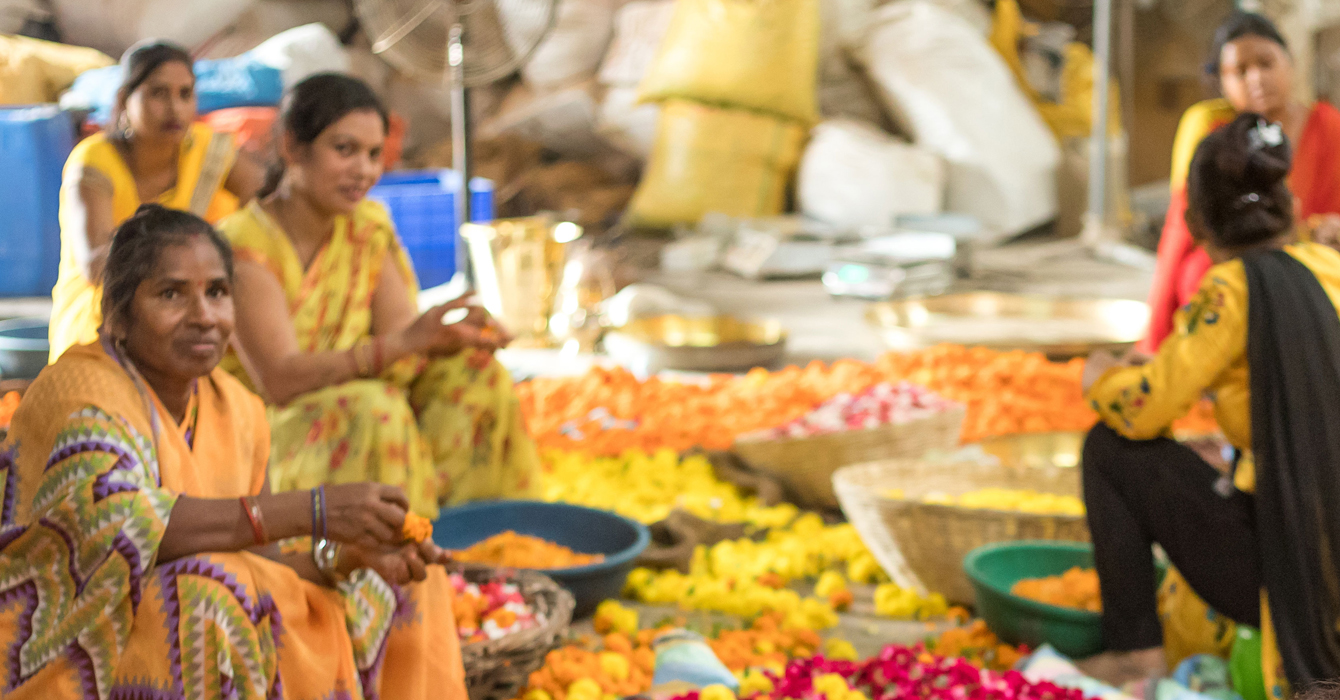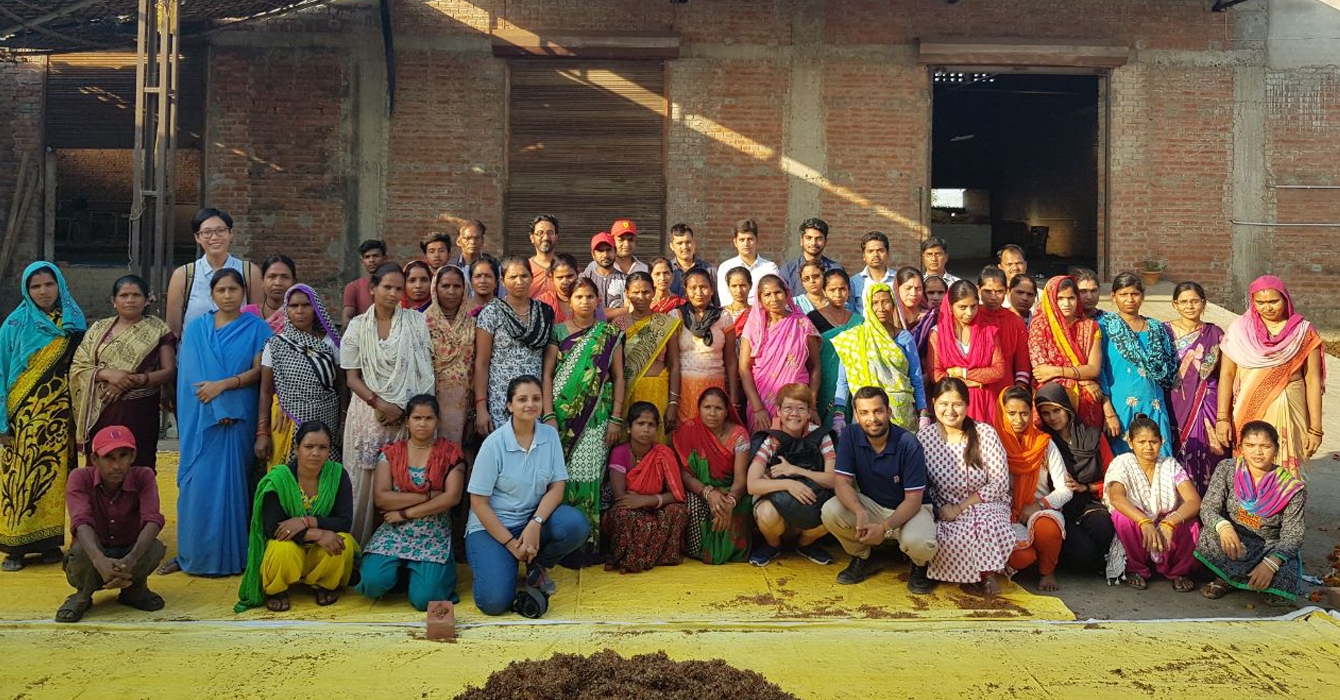The project has provided full-time jobs to women for removing waste from the Ganges and enabled children to attend school, restoring dignity.
Socioeconomic challenge
In India, 1.6 million women trapped by the caste system are forced into manual scavenging, cleaning sewers by hand and earning less than $1 a day. Meanwhile, pesticide-laden temple flowers are dumped into the Ganges River, causing severe pollution and threatening the ecosystem. Tackling both these issues is crucial for restoring dignity to marginalised women and preserving one of India’s most sacred rivers.
Purpose and strategy
Kanpur Flowercycling Pvt Ltd’s mission is to break the cycle of caste-based discrimination and poverty by providing marginalised women with dignified employment. The project trains these women to collect and process temple waste flowers, which are then repurposed into eco-friendly products like Fleather, a vegan leather alternative, and charcoal-free incense.
This initiative is rooted in the values of social justice, environmental sustainability and empowerment. By transforming harmful waste into valuable products, the project simultaneously addresses systemic poverty and environmental degradation, offering a scalable solution that integrates communities into the process of environmental preservation.

Impact and innovation
Since its launch, the project has employed 724 women, providing them with full-time jobs that offer financial independence and improve their quality of life.
By 2027, the initiative aims to uplift 5,000 women. In addition, 319 children of these women are now attending school, breaking the cycle of poverty and opening doors to a brighter future. Their focus on sustainability not only creates economic opportunities but also helps reduce environmental pollution. To date, they diverted over 17,350 tonnes of pesticide-laden flowers from polluting the Ganges, significantly reducing river pollution. By pioneering and leveraging "flowercycling®" technologies, they have transformed this waste into innovative products like Fleather.
The development of biodegradable and versatile products like Fleather not only opens new revenue streams and market segments but also strengthens their market position and attracts partnerships with forward-thinking companies. Their scalable waste processing model supports long-term growth by enabling replication in other regions, thereby expanding their market footprint.
Future outlook
Looking ahead, Kanpur Flowercycling aims to expand its impact by processing 12 tonnes of floral waste daily, further reducing pollution in the Ganges and providing sustainable livelihoods to more women. By 2027, the project seeks to recycle 100,000 tonnes of floral waste and employ 5,000 women.
Through continued innovation, collaboration with temple authorities and community engagement, the project is set to scale its operations across India, making a lasting impact on both social justice and environmental sustainability. Kanpur Flowercycling’s vision is to restore dignity to marginalised communities while preserving India’s environment for future generations.
















